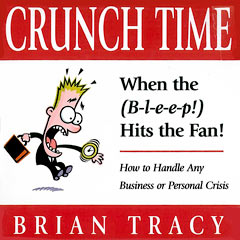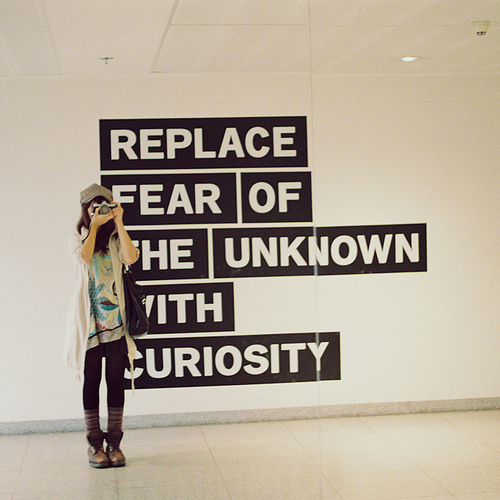Last updated on January 22nd, 2019 at 01:51 pm
When you are asked what you speak about, do you pause?
Yep. Been there. Done that. Got the t-shirt. Sometimes, to this day, I still find myself pausing when someone asks me what I speak about. It’s an issue that is prevalent among many speakers. While it makes us feel stupid as speakers when we have trouble answering this question, it is really more an issue of clarity than smarts. That pause doesn’t always indicate that you have no idea what you are speaking about, but more that you haven’t really narrowed your message down to a succinct series of points – or that you haven’t really defined its value to your buyer.
Let’s back up to the time when you decided to become a speaker. Maybe for you that’s today. If so, then this is a well-timed post.
Why did you decide to become a speaker? Maybe you saw me and said, “Shoot! I can do THAT!” Maybe people told you that you are a good speaker. Maybe you have a burning message or a story to tell to the world. Perhaps you have been thrust into a speaking role that you aren’t comfortable with, and you want to get better. They are all valid reasons. Personally, I feel that if you are called to speak, there is a reason, and it makes sense to follow that calling and see where it goes. And it will quickly bring you to a place of confusion as you are not sure exactly what your message is.
I have coached many speakers and have reviewed hundreds of speeches. While my job is to make their words better, I am often having to stop and back up a step because I don’t understand the message or what they are trying to teach me, or it doesn’t follow a clear structure. Good stories and humor are definitely the more important parts of a speech. But you can’t work on those until you have a solid foundation and structure, and clarity of message.
Let me see if I can make it easier for those of you still wondering what you speak about.
Speakers tend to do one of two things:
1. Deliver a Message
or
2. Teach Us Something
Do you teach us something or deliver a message?
Perhaps you could make a case that these are really two sides of the same thing, and I would probably agree. I’m also not one to get hung up on labels or technicalities. This is simply to help you see your speech in one of two different ways – to help you get clarity.
When I give a keynote speech about the power of story, I am delivering a message about how story is important to the way we communicate. It’s more of the WHY than the HOW. The “key note” of the conference or event, is usually seen in broader strokes. Less like a lecture, and more like a new idea, an experience, or a big open/finish. Keynotes can get by with a few general points wrapped in story.
When I give a workshop on the six ways to connect with your listener, I am teaching you six steps – the HOW. There is usually more content, more writing, and more interaction.
Sometimes I do both – in two sessions – or one long session. It depends on what the customer is asking for and what I am equipped to do.
If you’re struggling over what you should speak about, the first thing I usually ask is whether you want to deliver a message or teach me something.
Some of you aren’t sure.
Some of you don’t really know what your message is. You just know that you are good at this, and you’re not sure what message you should choose.
OK then. Let’s talk about that.
What kind of message does the customer want?
Some of you have a burning message to deliver to the world. It doesn’t matter to you how much money you’ll make, or how famous you get. You just need to share it. That is fine. Nothing wrong with having a calling to change the world. I admire that. The tricky part will be finding people to pay you to come share it. If that buyer doesn’t need that, he won’t buy it. For example, if you speak about dating tips, you need to understand that a company isn’t going to hire you to speak about that. If you speak about losing weight, don’t assume that just because most people need this advice, that everyone is buying it. The truth is that some of you have a message nobody is buying. This doesn’t mean you give up. This means you find a creative way to get your message out for free. Thanks to the internet, you can find your tribe.
Some speakers are skilled communicators, and have a wealth of knowledge, but don’t really know what their message should be. They need/want to make a living doing this, so they are concerned about what people are buying, and whether they can fit their knowledge to that need.
I am just one speaker, and while my calendar is busy, I still only provide one small perspective. But here are some things that I see people are out there buying:
- Something funny, motivating, energizing, and different to add to open/close their conference, or add fun and energy to an otherwise boring line up of industry speakers
- Customer Service Skills
- Leadership Skills
- Productivity Information
- Sales Information
- Teambuilding Concepts
- How to Manage People
- How to Engage Employees
- How To Market more Effectively
- How to Get Business and Keep It
- Trends in their Industry
- How to Navigate Technology
- Skills that will Help them in their Jobs or Daily Lives
- Health and Wellness
- Personal Development skills
…to name a few.
Sometimes a speaker will have a certain niche topic, like customer service, and establish themselves as an expert on that topic. Others, like me, will have a niche solution/answer, that can applied to several different topics. My answer in my speaking business is the power of story. What does it help people do? Pretty much everything on the list above. It doesn’t make me an expert on all those topics above (and I don’t claim to be). It makes me an expert on one skill that can be applied to all.
To make a long story short, you should already know what you know. You have your content. If you don’t, then stop and figure out what you know. After that, decide what need you can address. When you do that, you start to put yourself into the buyer’s place. You start to speak their language, and they can recognize how they need you based on how your message/teaching fits what they are looking for.
One Sentence To Help You Get Clarity
In case you are still scratching your head, here is one sentence you can play with to get closer to what it is you want to do. Fill in the blanks or edit as you see fit.
I want to help _________________________________(what kind of people) to ________________________________ (do what?) so that they can ______________________(help them do what?) and in result it will help them ___________________________________(to get what?).
Kelly Swanson is an award-winning storyteller, comedian, motivational speaker, Huffington Post Contributor, and cast member of The Fashion Hero television show airing on Amazon Prime. She is also the author of Who Hijacked My Fairy Tale, The Land of If Only, The Story Formula, and The Affirmation Journal for Positive Thinking. She was a featured entertainer for Holland America Cruise Lines, keynote speaker for the International Toastmasters Convention, and has keynoted major conferences and corporate events from coast to coast. She just launched her one-woman show Who Hijacked My Fairy Tale in theaters, and it is being booked all over the country. In July of 2022, she was inducted into the National Speakers Association Speaker Hall of Fame.
Note: Articles by Kelly may contain affiliate links and may be compensated if you make a purchase after clicking on an affiliate link.





